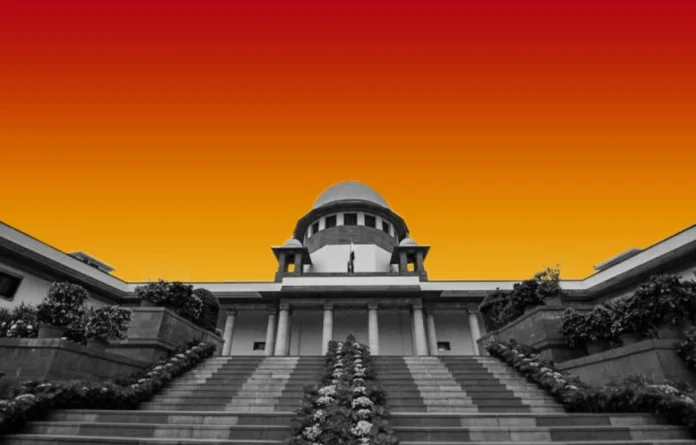The Supreme Court on Friday, while issuing various guidelines for the prevention of child marriages, refrained from passing judgment on whether the Prevention of Child Marriage Act, 2006 overrode personal laws that granted sanction to such marriages.
The Bench of Chief Justice of India DY Chandrachud, Justice JB Pardiwala and Justice Manoj Misra noted that a Bill introduced in Parliament in 2021 to amend the Prevention of Child Marriage Act to give it an overriding effect over personal laws, was still pending.
The Apex Court made the observation while hearing a PIL filed by an NGO Society for Enlightenment and Voluntary Action, seeking steps to prevent child marriages.
It said after the verdict was reserved in the matter, the Union Government filed a written submission saying that the Court may issue a direction that the PCMA prevailed over personal laws.
However, this aspect was not addressed during the hearings, the Bench noted today and left the issue open, considering that a Bill on the issue was pending in the Parliament.
It said the issue of the interface of personal laws with the prohibition of child marriage under the PCMA had been a subject of some confusion. The Union in its submission filed after the judgment was reserved stated that this court may direct that PCMA prevailed over personal law.
The Bench further said that details of conflicting opinions were not furnished in the submissions by either parties to these proceedings. The PCMA stated nothing on the validity of the marriage.
The Prohibition of Child Marriage Amendment Bill 2021 was introduced in the Parliament on December 21, 2021. It was referred for examination to the Department-related Standing Committee on Education, Women, Children, Youth and Sports. The Bill sought to amend the PCMA to expressly state the overriding effect of the Act over various personal laws. Therefore, the issue was pending consideration before Parliament, it added.
The Bench noted that the PCMA had certain gaps. However, in the absence of a constitutional challenge, the legal questions on these issues were kept open for adjudication in appropriate proceedings.
The Supreme Court was seized of the issue regarding the validity of the Muslim personal law allowing minor girls to marry after attaining the age of puberty. The Kerala High Court recently held that the Prohibition of Child Marriage Act would supersede the Muslim Personal Law (Shariat) Application Act, 1937
The judgment authored by CJI DY Chandrachud stressed the need to spread awareness among communities, instead of focusing merely on prosecutions.
The verdict said the Apex Court must not be understood to discourage prosecution, however, the aim must not be to only increase prosecution without taking efforts to prevent child marriage.
The Supreme Court stressed on having a community-driven approach to create awareness, mindful of the effect of the criminalisation on families and communities.
ASG Aishwarya Bhati represented the Union government. Advocate Mugdha also appeared during the proceedings.


